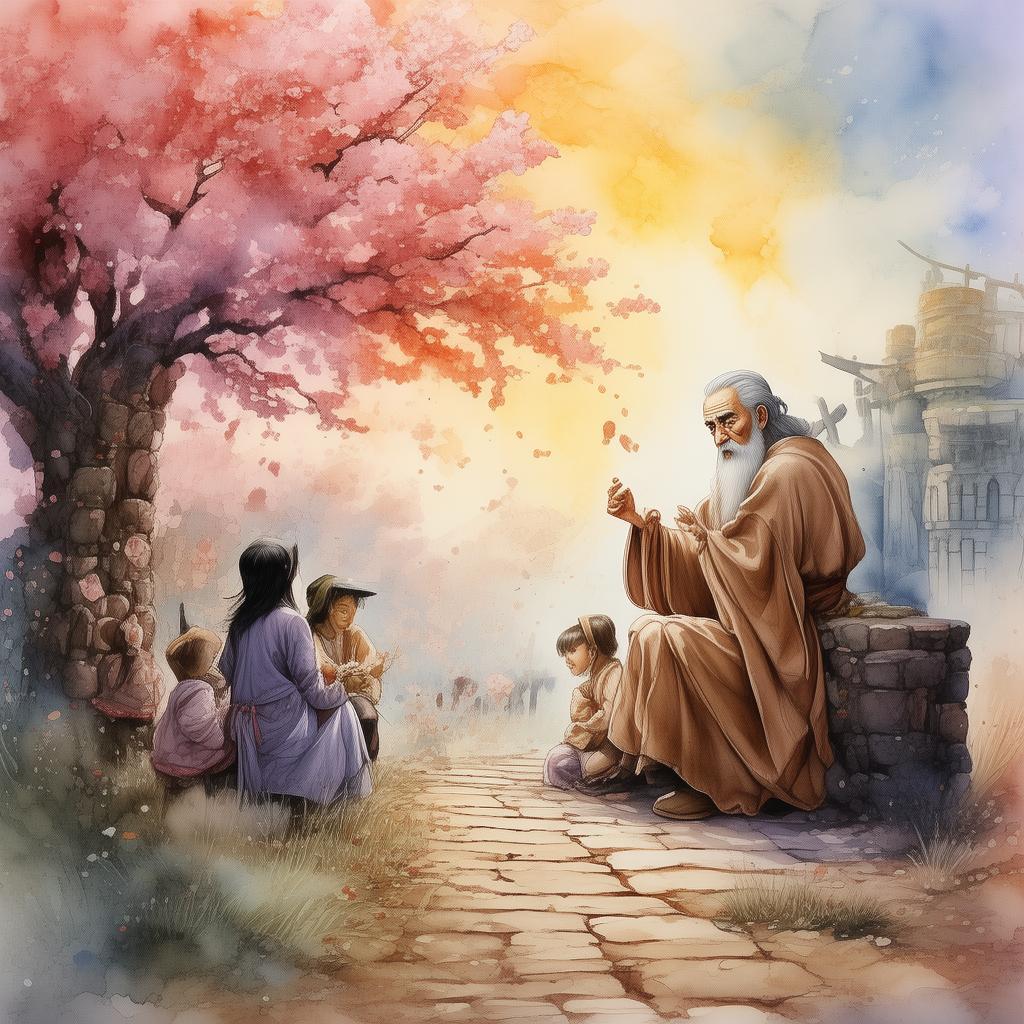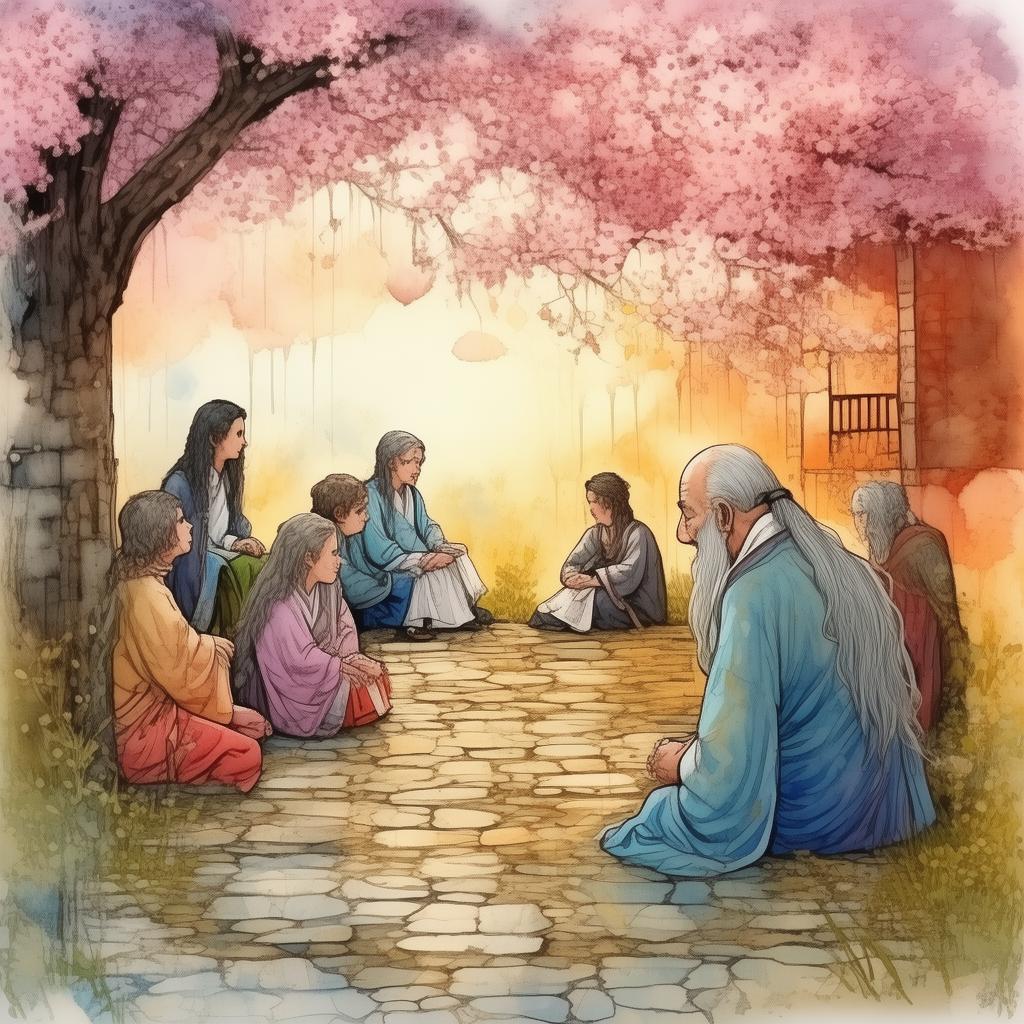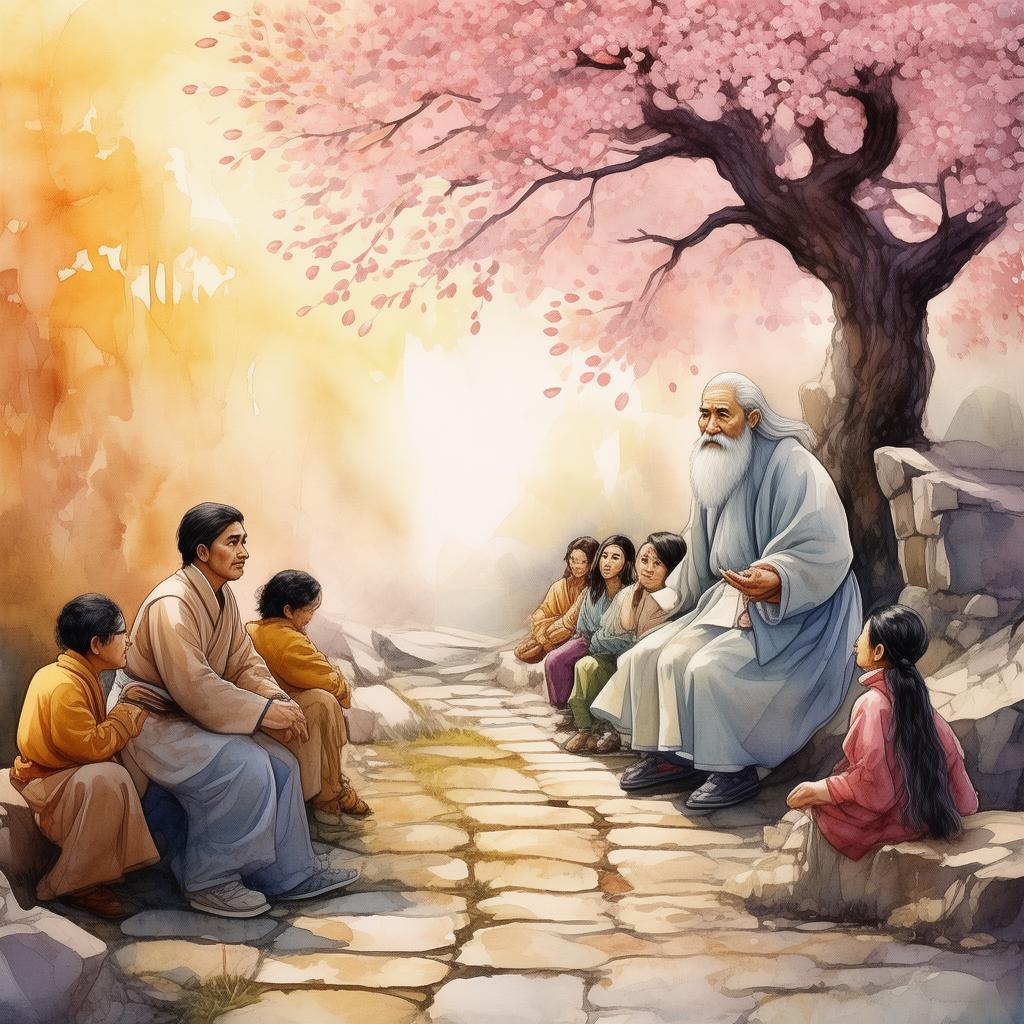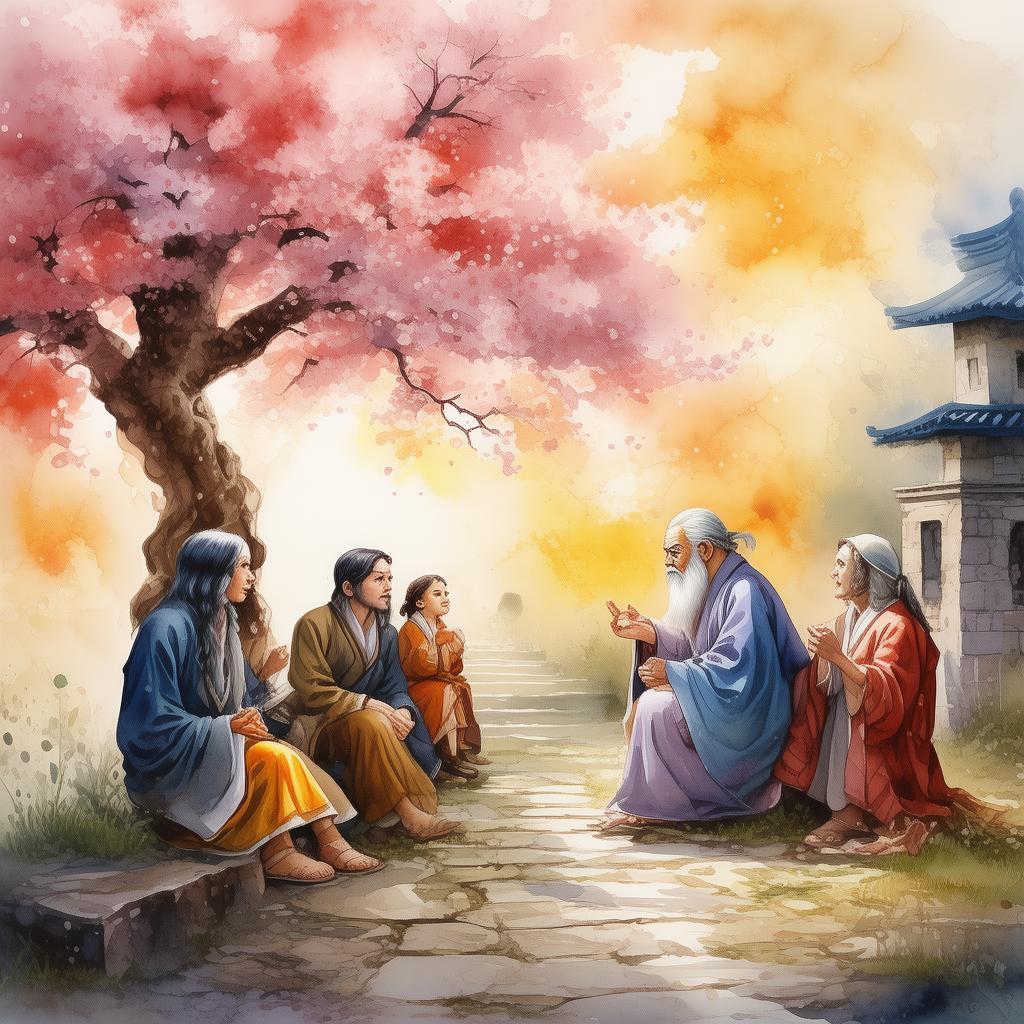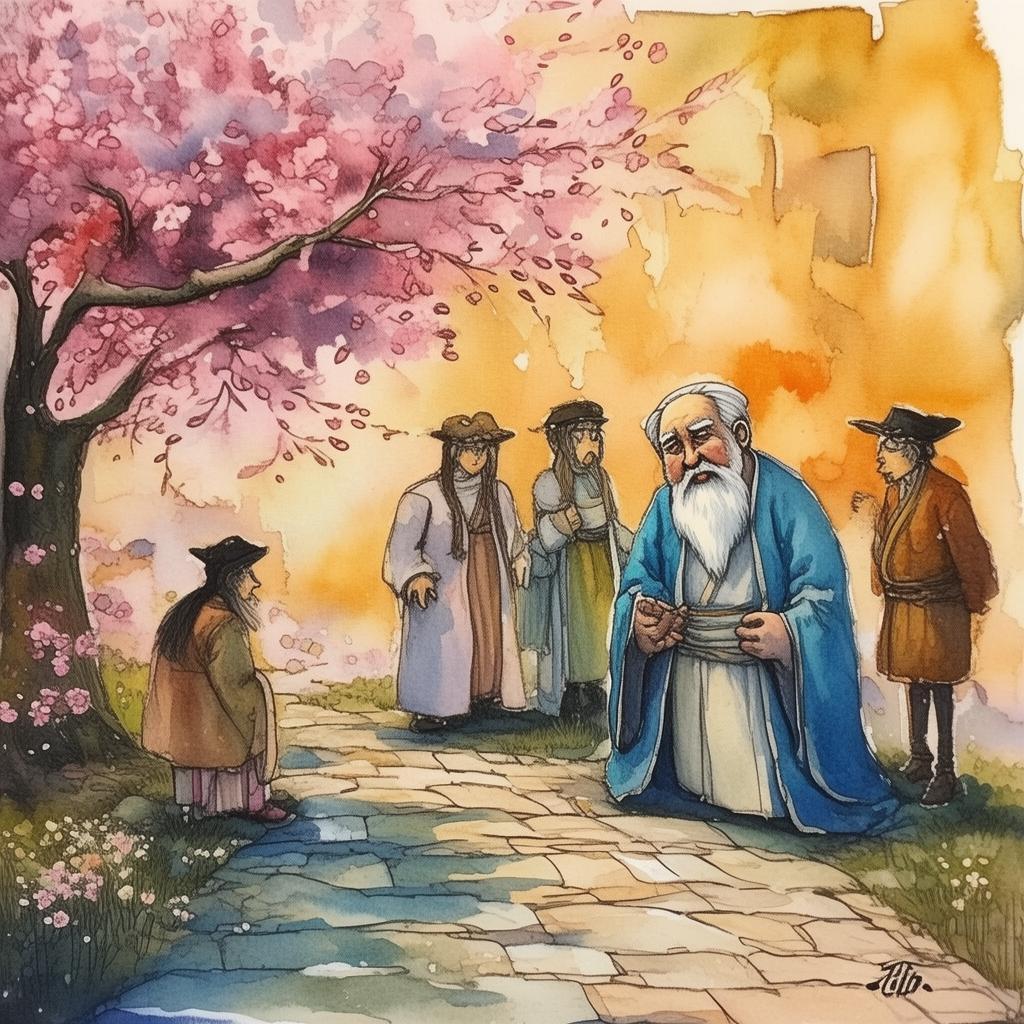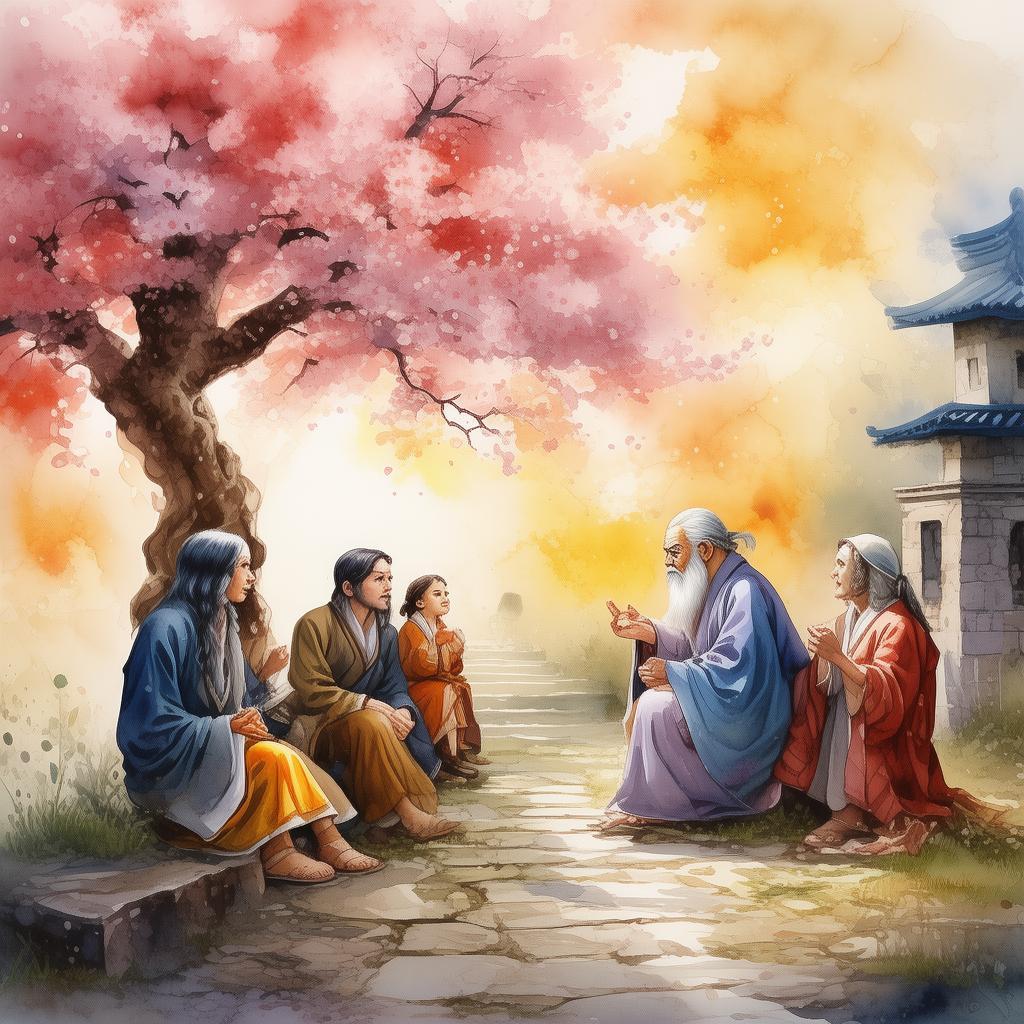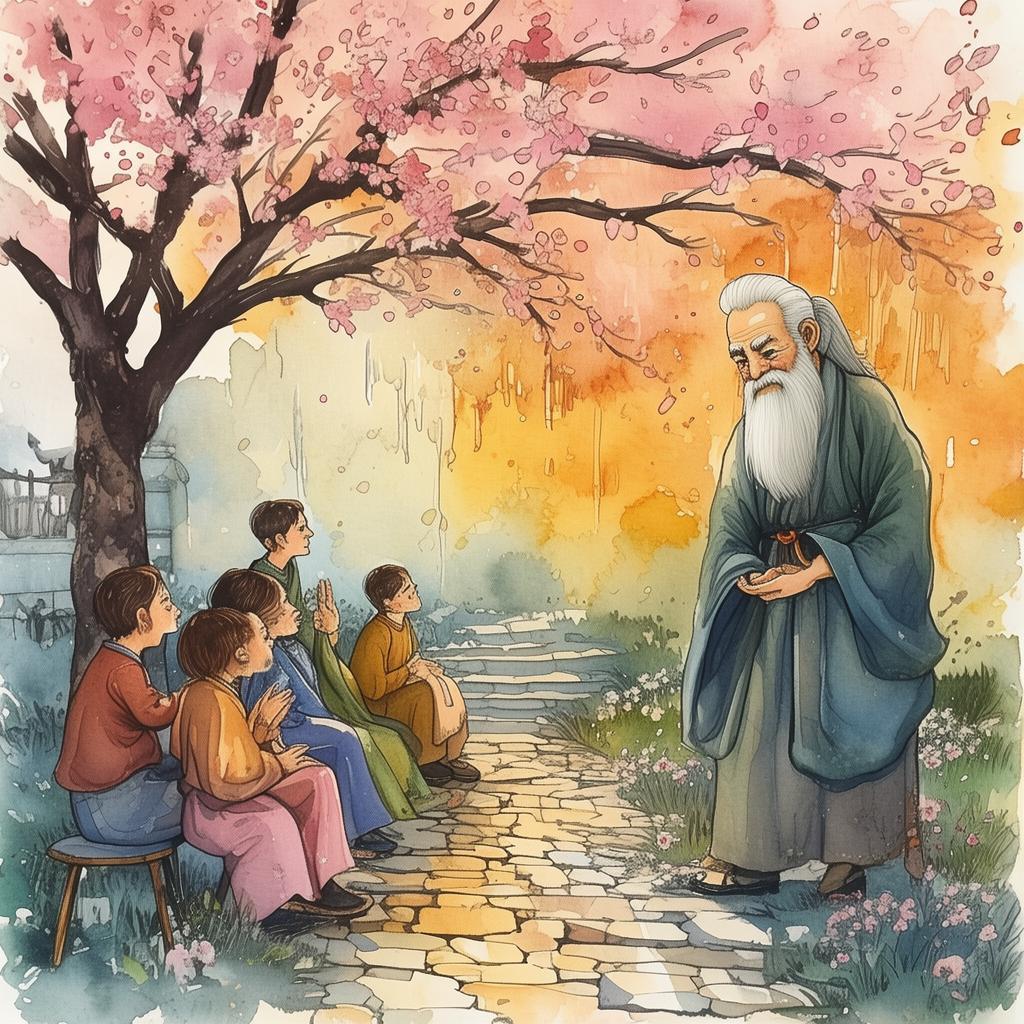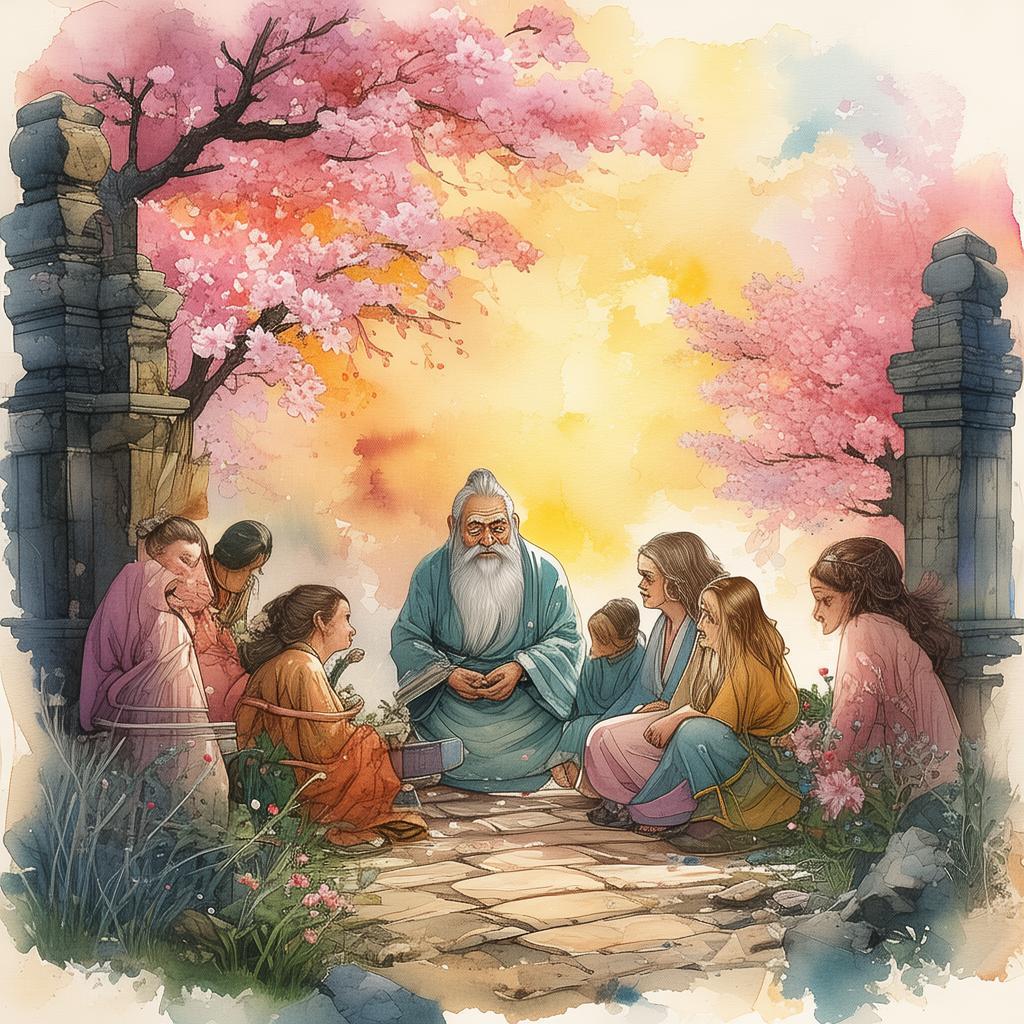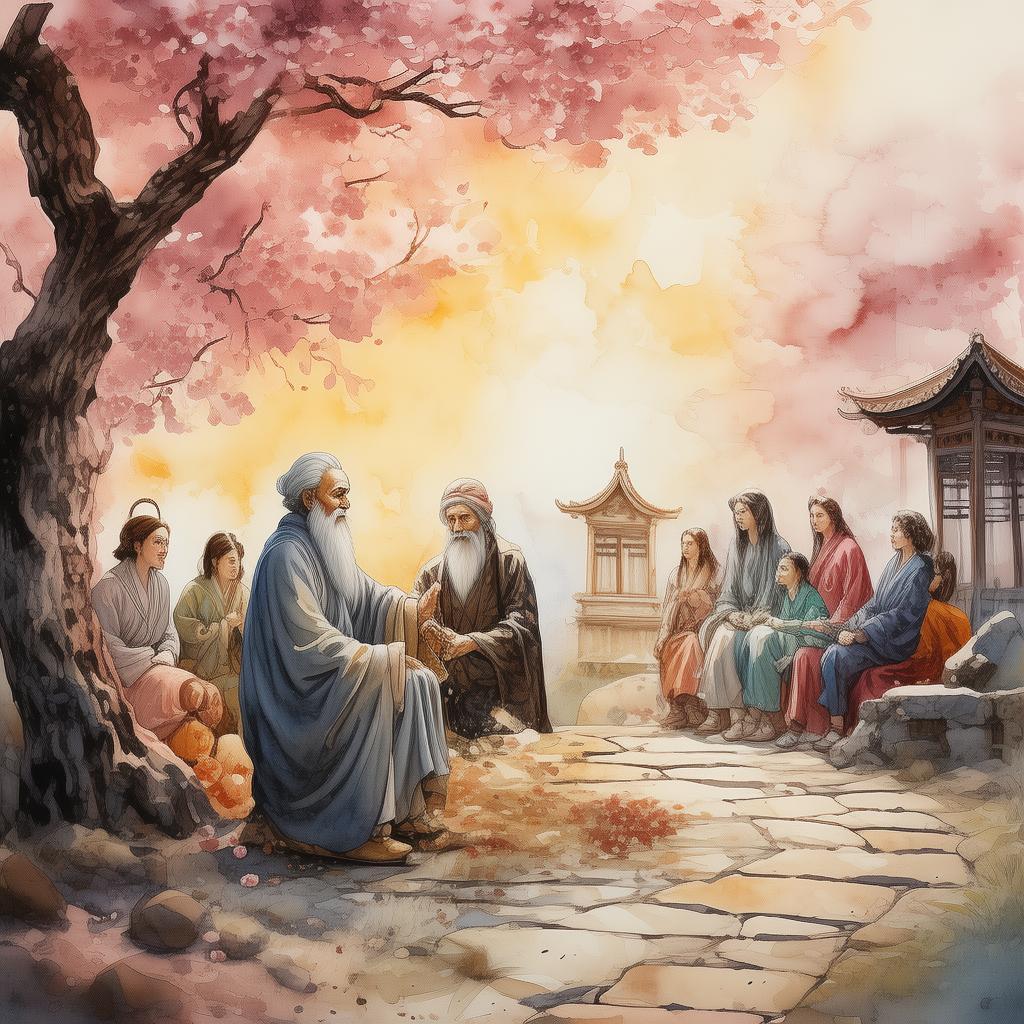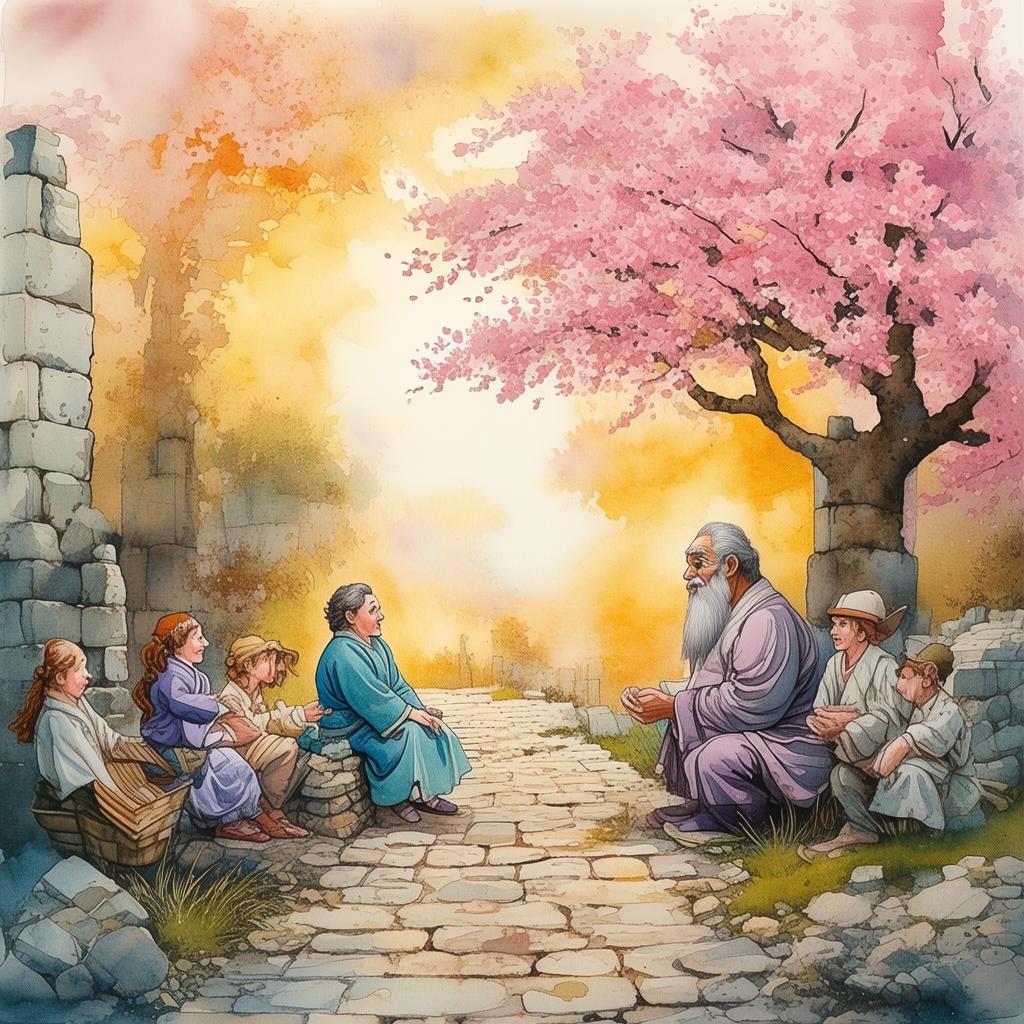Ironclad Bard: The Quest for the Soul's Harmony
In the heart of ancient China, where the ink of history was as precious as the gold of the emperors, there lived a poet whose name was as legendary as the mountains he adored. Known to all as Ironclad Bard, he was a man whose words could move the heavens and stir the souls of the people. His poems were tales of love, loss, and the eternal quest for meaning, but there was a darkness within him that he dared not acknowledge—the struggle between his artistic soul and the rigid moral code of his society.
The tale begins in the bustling city of Chang'an, where the Ironclad Bard was celebrated for his masterful verses. The people revered him, and his name was whispered with awe and admiration. Yet, beneath the surface, a moral dilemma gnawed at his heart. He found himself torn between his love for the truth and the fear of the consequences his words might bring.
One day, a young scholar named Lin approached the Ironclad Bard. "Great Bard, I seek your wisdom," Lin said, his eyes filled with hope. "My village has been cursed by an evil spirit, and no one knows how to end its reign of terror. The people are suffering, and I fear for their souls."
The Ironclad Bard listened intently, his heart heavy with the weight of the scholar's plea. He knew that to help Lin, he would have to delve into the darkest corners of his own soul, for the curse was not just a physical one; it was a moral one that had been woven into the very fabric of his village's history.
As the Ironclad Bard traveled to Lin's village, he encountered a world he had never seen before. The villagers were downtrodden, their spirits crushed by the weight of their ancestors' sins. The Ironclad Bard realized that the curse was a manifestation of their collective guilt, a reflection of their inability to reconcile their past with their present.
The villagers were divided. Some believed that the curse could only be lifted by the sacrifice of the purest soul, while others argued that the only way to break the curse was through atonement and forgiveness. The Ironclad Bard, with his deep understanding of human nature, knew that both sides were right, yet both were wrong.
He sought the counsel of the village elder, a wise woman whose eyes held the secrets of ages. "Bard," she said, "the soul's harmony lies not in sacrifice, but in understanding. The curse will lift when you find the balance between truth and compassion."
The Ironclad Bard understood that his quest was not just to lift the curse, but to find his own soul's harmony. He began to write, his verses flowing like a river, weaving the tales of the villagers' lives with the threads of their souls. He spoke of love and loss, of sin and redemption, and of the human capacity for change.
As the Ironclad Bard's words reached the hearts of the villagers, they began to see the truth within themselves. They realized that the curse was a mirror, reflecting their own moral failings. With each poem, the villagers' hearts softened, and they began to forgive themselves and each other.
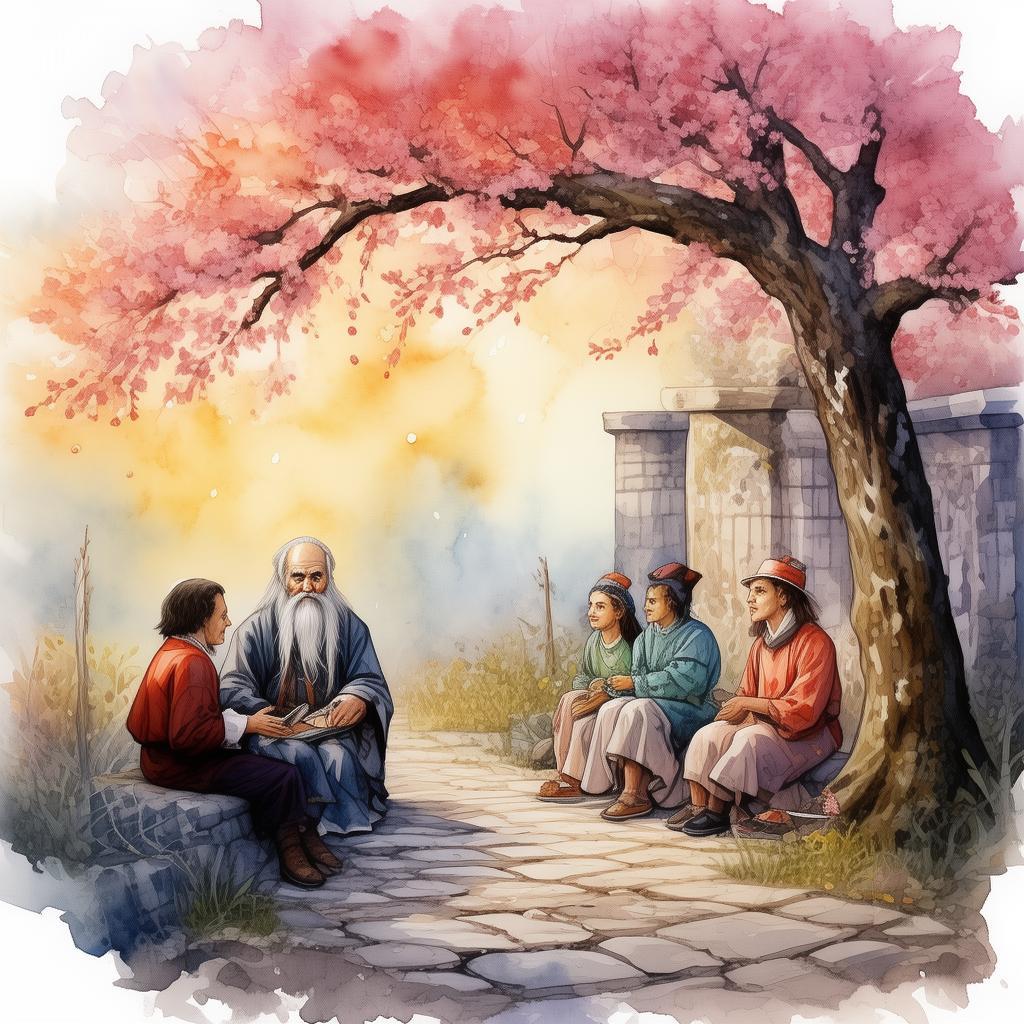
The climax of the story came when the Ironclad Bard faced a moral dilemma of his own. He discovered that Lin's father was the one who had cursed the village, driven by a desire for power and control. The villagers demanded justice, but the Ironclad Bard knew that justice alone would not heal the village.
With a heavy heart, the Ironclad Bard spoke to the villagers. "You have the right to demand justice, but let us not forget the power of forgiveness. If we seek only to punish, we will only create more suffering. Let us instead seek to understand and to heal."
The villagers were moved by his words, and they forgave Lin's father. The curse lifted, and the village was filled with a newfound sense of hope and unity. The Ironclad Bard, now at peace with his own soul, returned to Chang'an, his heart lighter and his spirit renewed.
The story of the Ironclad Bard and his quest for the soul's harmony spread far and wide, becoming a timeless tale of the eternal struggle between truth and compassion. His verses continued to inspire generations, reminding them that the true strength of a soul lies in its capacity to forgive and to heal.
In the end, the Ironclad Bard found his own soul's harmony, a delicate balance between his artistic passion and the moral dictates of his society. He had learned that the greatest power of a poet lies not in the words they write, but in the truth they reveal and the change they inspire.
✨ Original Statement ✨
All articles published on this website (including but not limited to text, images, videos, and other content) are original or authorized for reposting and are protected by relevant laws. Without the explicit written permission of this website, no individual or organization may copy, modify, repost, or use the content for commercial purposes.
If you need to quote or cooperate, please contact this site for authorization. We reserve the right to pursue legal responsibility for any unauthorized use.
Hereby declared.
